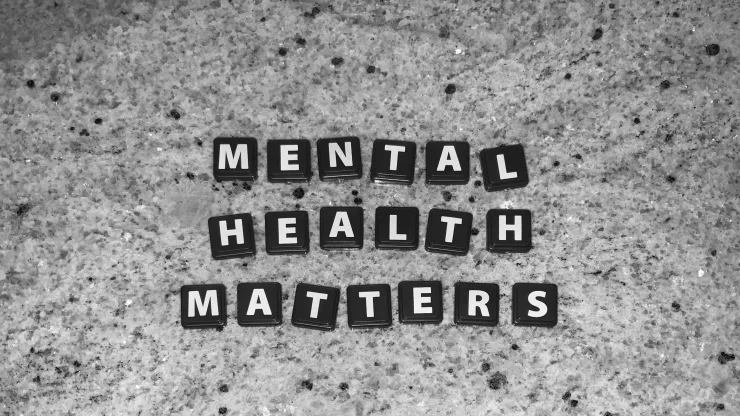Mental health is a crucial aspect of our overall well-being that should never be ignored. However, it can be a challenging and often isolating experience to navigate on one’s own.
Fortunately, there are many mental health support groups available to individuals seeking assistance.
These groups provide a safe and supportive environment where individuals can share their experiences and connect with others who are going through similar struggles.
In this article, we will provide a comprehensive guide on how to find and participate in a mental health support group.
Jump to Section
The Importance of Mental Health Support Groups
Mental health support groups play a critical role in promoting mental well-being. These groups offer individuals a sense of community, validation, and hope.
They provide a platform for people to share their experiences and feelings, and they can serve as a source of encouragement and motivation.
Many people find that participating in a support group can help them feel less alone, more understood, and better equipped to manage their mental health.
Understanding Mental Health Support Groups
What Are Mental Health Support Groups?
Mental health support groups are gatherings of individuals who come together to share their experiences, feelings, and struggles related to mental health.
These groups are led by a facilitator who helps to guide the conversation and maintain a safe and supportive environment.
Many support groups are free and open to the public, while others may require a membership fee or referral.
Mental health support groups can be found in a variety of settings, including hospitals, community centers, religious institutions, and online.
Different Types of Mental Health Support Groups
There are many different types of mental health support groups available, each with its own unique focus and approach.
Some support groups are designed specifically for individuals struggling with a particular mental health condition, such as anxiety, depression, or addiction.
Others may focus on a particular demographic, such as seniors or LGBTQ+ individuals. Some support groups may incorporate specific techniques, such as cognitive-behavioral therapy or mindfulness meditation.
It is important to research different types of support groups to find one that aligns with your needs and preferences.
How Mental Health Support Groups Can Help
Participating in a mental health support group can be immensely beneficial for many reasons. In addition to providing emotional support and a sense of community, support groups can also offer practical guidance and resources.
Members may share coping strategies, self-care techniques, and information about local mental health resources.
Support groups can also provide a space for members to practice social skills and build relationships, which can be especially helpful for individuals who are struggling with isolation or loneliness.
Identifying Your Needs
Assessing Your Mental Health Needs
Before seeking out a support group, it is important to assess your mental health needs.
This may involve reflecting on your symptoms, triggers, and challenges, as well as considering any past experiences with mental health treatment or support.
It may also be helpful to consult with a mental health professional, such as a therapist or psychiatrist, to get a better understanding of your mental health needs.
Identifying the Type of Support You Need
Once you have a better understanding of your mental health needs, you can begin to identify the type of support you need.
This may involve considering the type of mental health condition you are struggling with, as well as any specific challenges you are facing.
For example, you may be looking for a support group that focuses on managing anxiety in social situations.
It can also be helpful to consider factors such as the size and location of the support group, as well as the facilitator’s approach and style.
Finding Groups That Cater to Your Needs
Once you have identified the type of support you need, you can begin to search for support groups that cater to those needs. There are many resources available for finding mental health support groups, including online directories, mental health clinics and professionals, advocacy organizations, and social media. It may be helpful to reach out to multiple groups and attend a few meetings to get a better sense of which group is the best fit for you.
Researching Mental Health Support Groups
Searching Online for Mental Health Support Groups
One of the easiest ways to find mental health support groups is by searching online. There are many online directories and resources available that can help you find support groups in your area.
Some examples include the National Alliance on Mental Illness (NAMI) and the Substance Abuse and Mental Health Services Administration (SAMHSA). It can also be helpful to search for online forums or chat rooms related to your mental health condition, as they may offer additional support and resources.
Contacting Mental Health Clinics and Professionals
Many mental health clinics and professionals offer information and referrals for mental health support groups. If you are already receiving mental health treatment, you may want to ask your therapist or psychiatrist for recommendations.
You can also contact mental health clinics or hospitals in your area to inquire about support groups.
Reaching Out to Advocacy Organizations
Advocacy organizations are another great resource for finding support groups. These organizations are typically focused on a particular mental health condition or demographic and may offer a variety of resources, including support groups.
Some examples of advocacy organizations include the National Alliance on Mental Illness (NAMI), the Anxiety and Depression Association of America (ADAA), and the American Foundation for Suicide Prevention (AFSP).
Utilizing Social Media to Find Support Groups
Social media can be a powerful tool for finding mental health support groups. Many support groups have Facebook pages or groups where members can connect and share information.
You can also search for hashtags related to your mental health condition on Twitter or Instagram to find online communities and support groups.
Evaluating Mental Health Support Groups
What to Look for in a Mental Health Support Group
When evaluating a mental health support group, there are several factors to consider.
These may include the group’s focus and approach, the facilitator’s qualifications and style, the size and location of the group, and the dynamics of the group.
It is important to look for a group that aligns with your needs and preferences, as well as one that offers a safe and supportive environment.
Questions to Ask the Group Facilitator
When attending your first meeting, it can be helpful to ask the group facilitator some questions to get a better sense of the group’s approach and style. Some questions to consider asking may include:
- What is the group’s focus and approach?
- How long has the group been meeting?
- What is the format and structure of the group?
- What are the group’s rules and guidelines?
- How many members typically attend the group?
- How does the group handle confidentiality and privacy?
- What is the facilitator’s background and qualifications?
- How can members stay connected between meetings?
Participating in a Mental Health Support Group
Understanding Group Dynamics
Participating in a mental health support group can be a unique and rewarding experience. However, it is important to understand the dynamics of the group and how to navigate them.
Some common group dynamics may include sharing personal experiences, offering support and encouragement to other members, and practicing active listening and empathy.
It is also important to respect the group’s rules and guidelines, and to maintain confidentiality and privacy.
Preparing for Your First Meeting
Attending your first support group meeting can be nerve-wracking, but there are several things you can do to prepare.
You may want to bring a notebook and pen to take notes, as well as a list of any questions or concerns you may have.
It can also be helpful to practice some self-care techniques, such as deep breathing or meditation, to help you feel calm and centered.
Setting Realistic Goals for Participation
Participating in a support group can be a powerful tool for managing your mental health. However, it is important to set realistic goals for your

With a deep passion for personal development, Ben has dedicated his career to inspiring and guiding others on their journey towards self-improvement.
His love for learning and sharing knowledge about personal growth strategies, mindfulness, and goal-setting principles has led him to create My Virtual Life Coach.
Contact Ben at [email protected] for assistance.




